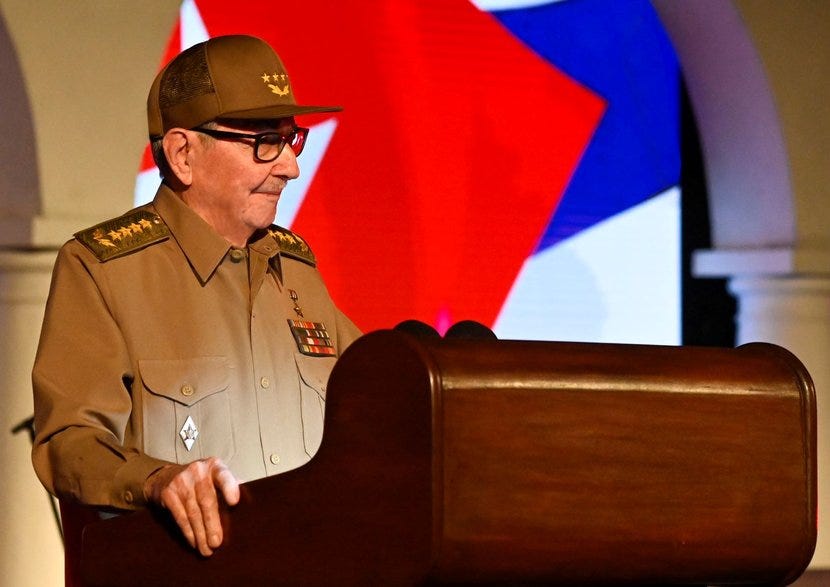Raúl Castro ratifies chiefs and calls for unity
Intergenerational continuity in the Cuban socialist revolution

In Cuba, the late Fidel Castro is referred to as “el Comandante en Jefe” [the Commander in Chief] and “the historical leader of the Revolution,” and Raúl Castro is known as “the General of the Army” and “the leader of the Revolution.” Miguel Díaz-Canel is the First Secretary of the Central Committee of the Communist Party of Cuba and the President of the Republic, positions to which he was elected in 2021 (by the Central Committee of the Party) and 2019 (by the National Assembly of People’s Power) respectively. When first elected as head of state, he declared that Raúl would continue to be the leader of the Revolution and would be consulted for all decisions of importance.
Since his resignation as First Secretary of the Party, Raúl has been visible just enough to communicate his support for what was transpiring without…


